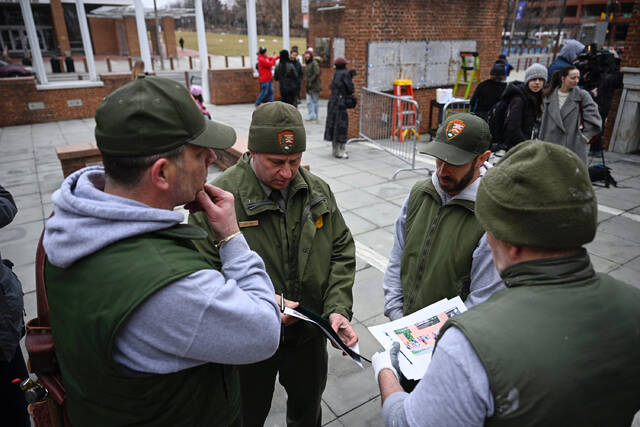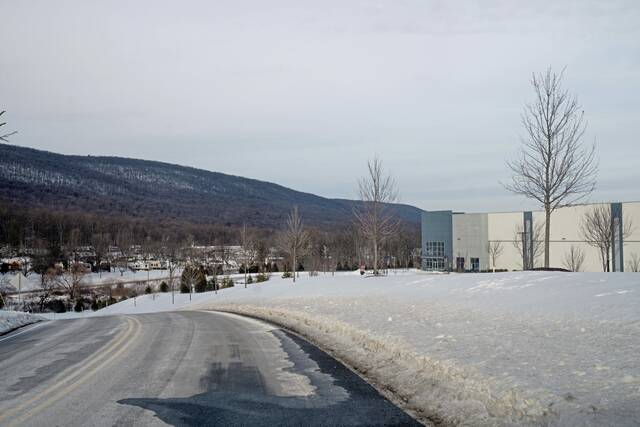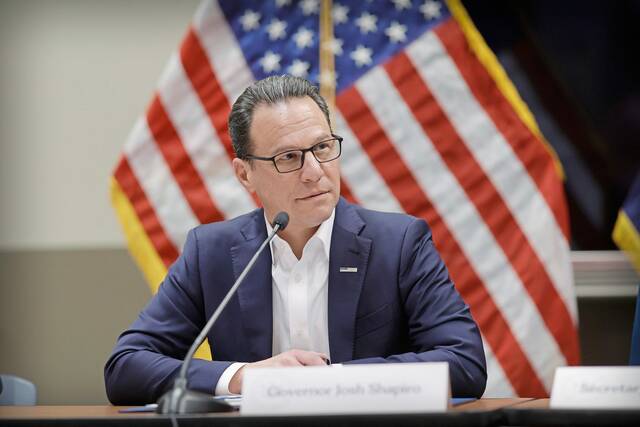The Secretary of Corrections on Friday laid out the state prison system’s plan to gradually step down pandemic-related restrictions and talked about factors he said led to outbreaks in some prisons and not others.
John Wetzel, head of the Pennsylvania Department of Corrections, also said the state’s criteria for granting inmates temporary reprieves might have been too strict to release as many as officials initially hoped.
“It’s going to be a long path to normal,” Wetzel said in a call with reporters.
The plan incorporates Gov. Tom Wolf’s red-yellow-green phased reopening but divides the gradual loosening of restrictions into five levels, with the fifth being the most restrictive.
Moving to lower levels will depend on new cases of covid-19 among staff and inmates. It also will take into account the phase of the county where the prison is located.
Eleven facilities will move to level four on Tuesday: Camp Hill, Chester, Coal Township, Dallas, Frackville, Huntingdon, Mahanoy, Phoenix, Retreat, Smithfield and Waymart.
Level four allows more inmates to be out of their cells at the same time, something generally known as cohorting. Level five limits that to no more than two inmates at a time. Level four increases that to up to 16. Many restrictions remain in place, and things such as meals still will be delivered to individual cells.
Another 14 facilities will move to level three on Tuesday: Albion, Benner, Cambridge Springs, Fayette, Forest, Greene, Houtzdale, Laurel Highlands, Mercer, Muncy, Pine Grove, Quehanna, Rockview and Somerset.
Level three raises the number of inmates allowed out at one time to up to 20. The law library and chapel will be open with social distancing and capacity guidelines.
In-person visitation will remain suspended until the entire state is in the green phase, Wetzel said, and his staff is working on “creative ways” to make sure that when it resumes it can happen safely.
The Pennsylvania State Corrections Officers Association issued a statement saying it “recognizes this is a gradual plan. We will continue to monitor it as it unfolds to ensure all steps are being taken to maximize the safety of our officers.”
At SCI-Muncy, staff has developed a cross-shaped plexiglass patrician that would separate each of the four seats at a table in the visitation room. Wetzel said the facility is looking at “walk-thru” dining, where inmates would walk to the cafeteria and take their food back to their cell.
“The key thing in this chart and in this plan is the cohort,” Wetzel said. “If you have a positive case in that cohort, that’s how many could possibly get the disease.”
Five inmates and one employee have died from the virus since the pandemic began: two inmates and one employee at SCI-Phoenix and two inmates at SCI-Hungtindon. Overall, 72 employees and 37 inmates at Phoenix have tested positive. The totals in Hungtindon are 158 inmates and 51 employees.
System-wide, 231 inmates and 166 employees have contracted the virus.
Wetzel said the outbreak at Huntingdon could be explained by how dense the population is there coupled with the fact cell doors are still made of bars rather than solid plexiglass. The prison was built in 1880.
As of Friday, 152 people had been released under the temporary reprieve program signed by Wolf in early April. The order allows for the temporary release of nonviolent inmates who meet a host of criteria. At the outset, an estimated 1,800 inmates were eligible for the program.
“It’s lower than my expectations, but now much lower,” Wetzel said, noting that once they dug down into the details of the criteria and the files of inmates, officials realized far fewer inmates would be eligible.
He said about 200 inmates were within a few weeks of their release date, and so it made sense to wait on their release. Several dozen others are awaiting parole hearings. Wetzel said he does not want to grant someone a reprieve just to have the parole board decide they shouldn’t be released.
Another 200 are going through programs and could be eligible for a reprieve, he said. Around 20 refused the reprieve because of the possibility they would have to finish their sentences back in prison after the governor’s disaster declaration ends.
In the meantime, facilities are testing inmates before they are released or transferred, Wetzel said, and screenings for illness and other mitigation efforts will continue.
“While we may never return to pre-covid operations, we do expect to return to near normal operations,” he said. “That includes social distancing and continued monitoring of staff and inmates for symptoms.”








